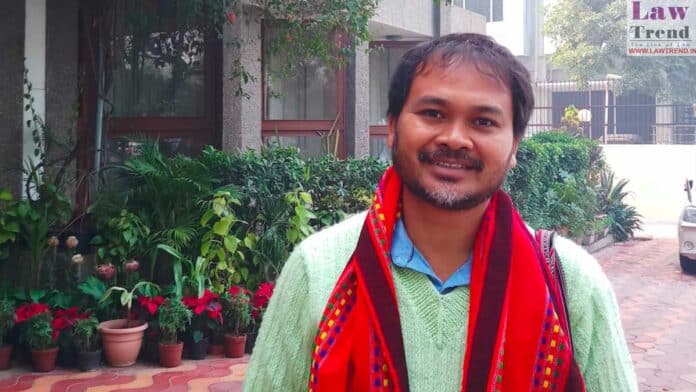The Supreme Court on Tuesday granted bail to independent Assam MLA Akhil Gogoi in connection with a case related to anti-CAA protests and suspected Maoist links.
A bench of Justices V Ramasubramanian and Pankaj Mithal, however, affirmed a Gauhati High Court order which had set aside Gogoi’s discharge in the case.
The lawmaker, who has allegedly been vocal against the Central government during the anti-Citizenship Amendment Act protests, had moved the top court against the February 9 order of the high court allowing the special NIA court in Assam to proceed with the framing of charges against him in one of the two cases.
Earlier, the high court had permitted the NIA to seek framing of charges in the special court against Gogoi and three of his associates in connection with anti-CAA protests and suspected Maoist links.
The high court’s order had come on an appeal of the NIA challenging the order of a special NIA court giving clean chit to the four.
A high court division bench comprising Justices Suman Shyam and Malasri Nandi had asked the agency to go ahead with framing charges after reopening the case.
The MLA has come to the apex court against the order.
The other three accused were Dhaijya Konwar, Bittu Sonowal and Manash Konwar, all of whom got bail in the NIA case and were released from jail.
Gogoi was the only one whose bail was rejected by the court and he was released after spending 567 days in jail once Special NIA Judge Pranjal Das cleared him along with the three others of all charges.
The NIA is investigating two cases against Gogoi related to anti-CAA protests. In one of those, the special NIA court had granted him bail, which was upheld by the Gauhati High Court too in April 2021 after the probe agency challenged it.
The RTI activist continued to be in judicial custody as he was rejected bail in the second case related to anti-CAA violence and was being investigated by the NIA.
Later, the special NIA court on July 1, 2021 released Gogoi and his three associates for their alleged role in the violent anti-Citizenship (Amendment) Act stir in the state in December 2019 and observed there was nothing to indicate that the “talk of blockade” threatened the country’s economic security or was “a terrorist act.”
The NIA then moved the Gauhati High Court appealing it to allow the agency to frame charges under various sections, including sedition, of the IPC and the Unlawful Activities (Prevention) Act, 1967.




